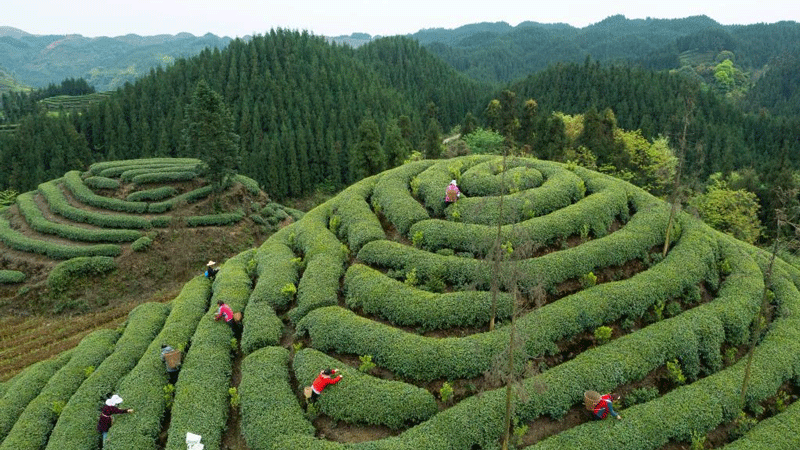China-Europe freight trains carry footballs to World Cup
The FIFA World Cup, held every four years, is currently underway in Qatar. At the same time, Yiwu, a county-level city in east China’s Zhejiang Province, is stepping into the limelight of this global sports event.
Before the football gala kicked off, it was reported that over half of World Cup-related products were manufactured in Yiwu, with the city rushing out 100,000 footballs in just 50 days.
These Yiwu-made products range from footballs and trumpets to jerseys and trophies, covering virtually every item related to the sport.

(Photo/China State Railway Group Co., Ltd.)
Actually, Yiwu’s manufacturers for the World Cup have been in a race against time this year to ensure smooth production as well as logistics.
“Our customers are mainly from Brazil, Mexico, Spain, and France, among others,” said a salesman from a football factory in Yiwu.
The China-Europe freight train, a globally renowned logistic brand, plays a vital role in helping these products smoothly flow into the international market. Against the backdrop of a worldwide pandemic and a fast-changing global landscape, the China-Europe freight train continues to run on a regular basis and on a large scale, maintaining the stability of global supply and safeguarding industrial chains.
For instance, the freight train leaving from Yiwu for Madrid, capital of Spain, travels through eight countries and takes a mere 14 days to arrive at its destination, about half the time needed for maritime transport.
Since the routes starting from Yiwu went into operation nine years ago, they have grown into a major artery for trade between Asia and Europe. At the same time, the city continues to set up overseas warehouses, upgrading its “station to station” service to a “door to door” service.

(Photo/China State Railway Group Co., Ltd.)
The railway route between Yiwu and Madrid entails a trip of 13,052 kilometers and stretches through the new Silk Road, and is the longest journey of its type. The route has seen 1,423 China-Europe freight train trips made so far in 2022, up 19.7 percent from a year ago.
In addition to the railway link, Yiwu has also launched a shipping lane dedicated to the World Cup, which departs from the neighboring Ningbo-Zhoushan Port, which has the highest cargo throughput globally.
The vast majority of sports commodities, such as footballs and string flags, are transported from Yiwu to Ningbo Port and Shanghai Port via a sea-rail intermodal connection, and then transferred to ships bound for Qatar. It fully leverages the integrated strengths of railways, ports, ships and enterprises, boosting transportation efficiency by 10 to 20 percent and allowing for the quick arrival of World Cup-themed items in the host country.
“At present, most orders have been dispatched, which guarantees timely delivery and has seen a year-on-year increase in sales of about 30 percent,” said a merchant, surnamed Chen, who sells goods such as footballs and trumpets.

(Photo/China State Railway Group Co., Ltd.)
A freight center of China Railway Shanghai Group Co., Ltd. in Jinhua, east China’s Zhejiang Province, takes full advantage of Yiwu’s sea-rail intermodal transport services that operate efficiently round the clock. Less vulnerable to the COVID-19 epidemic, the services have evolved into a pillar passage for local foreign trade.
Currently, there are three sea-rail intermodal freight trains pulling out from Yiwu to the Ningbo-Zhoushan Port each day, with a record-high throughput of 16,000 twenty-foot equivalent units (TEUs) in a month, making Yiwu the largest sea-rail intermodal hub in east China. So far this year, the volume of exports shipped through the city’s land-sea link has registered 68,000 TEUs, a rise of 18.7 percent year on year.
The stable weekly operation of sea-rail intermodal freight trains significantly enhances the integrated development between Yiwu, an international land port, and the Ningbo-Zhoushan Port, adding new impetus to the Maritime Silk Road and the stability of global supply and industrial chains.
Photos
Related Stories
Copyright © 2022 People's Daily Online. All Rights Reserved.









